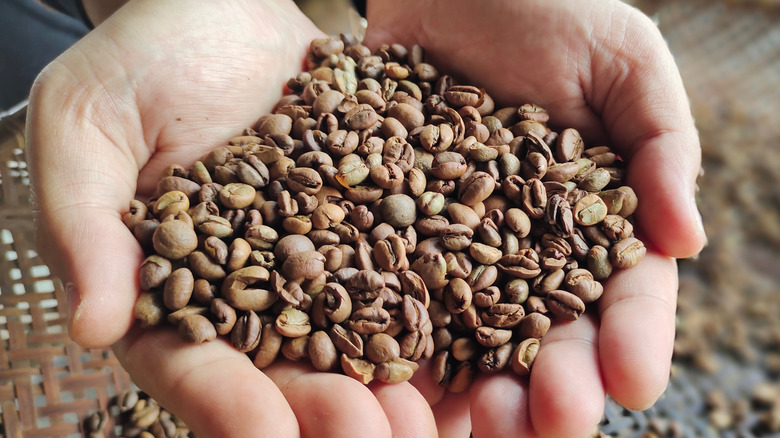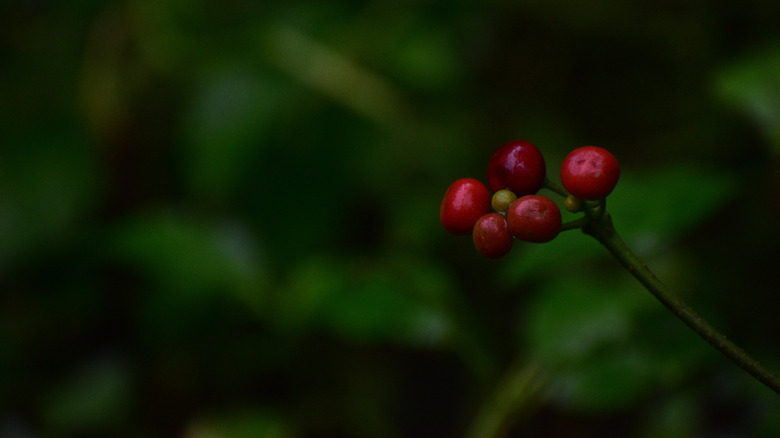Why The Rare Excelsa Beans Might Become Your Morning Coffee Staple
Most of the coffee drunk around the world comes from either arabica or robusta beans, the two common coffee types — but climate change is threatening their reign. Experts estimate that rising temperatures and extreme changes in weather might drive half of the world's coffee species to extinction by 2050. We're already seeing coffee production in numerous coffee-growing countries fall due to heavy rainfall and hotter climates.
The problem is that coffee beans are delicate and need very specific conditions to grow. This is particularly true of arabica, which is often considered the higher-quality bean. Although robusta earns its name from being more robust and growing in a wider geographical range, it also seems like it's no match for the harsh changes in climate that we're experiencing. Consumers are personally affected by this where it hurts the most: their pockets. Lower yields lead to lower supply, and since demand isn't slowing down, coffee prices are going up and are likely to continue increasing.
Not all hope is lost, however. Many are now turning to excelsa, a rare coffee bean that was only discovered in 1903 in the region that is now South Sudan. Currently also cultivated in central Africa and south and southeast Asia, its taste is somewhat close to that of arabica, with tart fruity notes and hints of chocolate and nuts. This bean has shown to be sturdier than its counterparts, being resistant to extreme weather and certain diseases that affect coffee plants.
Is excelsa the future of coffee?
Excelsa's sturdiness comes partly from the fact that it grows on a tree rather than a tall perennial shrub like arabica and robusta. The root of the tree grows faster and is stronger than that of shrubs, which helps it better withstand harsh conditions. Enthusiasts are hopeful that its unique flavor profile and resilience against certain climate factors will attract more buyers and increase demand. But despite the benefits, this could prove a hard sell.
It's hard to convince consumers to change their habits, especially in countries that already have strong coffee traditions. Breaking into a market as established as coffee won't be easy. The other issue is that we still don't know too much about the excelsa bean, so switching will require huge investments to research the best growing practices. Finally, excelsa's strength is also its weakness. Since its tree can grow to almost 50 feet in height, harvesting can be difficult and expensive.
Will excelsa replace arabica and robusta? Maybe in a very distant future where our preferred varieties are unavailable or so expensive that only the very rich can afford them. But the bean still has a long way to go until it becomes a staple of our kitchens. That said, some people in the industry are hopeful about experiments that use excelsa to graft other varieties and hopefully strengthen them. It seems like regardless of what happens, excelsa will play an important role in the future of coffee.

